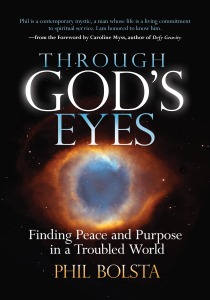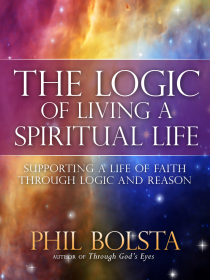
Kathryn Harwig
I know that a lot of people struggle with the question, How can I distinguish the voice of my intuition from the voice of my ego? I like the way that Kathryn Harwig, a friend of mine who’s an author and psychic, provides an excellent analysis of that issue in this essay from her website. With Kathryn’s permission, I’m sharing it here.
INTUITION VERSUS SELF TALK
Recently someone asked me, “How do I know if the information I am getting is coming from my intuition or from my own self talk?” This is a very good question, and one that everyone who is serious about being intuitive needs to ask on occasion. It is a challenge to be intuitive about yourself and most of us find that it is far easier to give someone else a psychic reading than to give ourselves good intuitive advice.
Why? Because our own hopes, dreams, worries and fears tend to get in the way of our hearing our inner psychic, at least when we are asking for information for ourselves. Many people solve this dilemma, at least in part, by consulting with other psychics. But, we also want and need to use our intuition to make our own lives better. So, it is necessary, I think, to be able to distinguish the voice of our inner self talk and the quiet voice of our intuitive wisdom.
I attended a talk once where the speaker said that our unconscious mind was unable to hear the word “Not”. Her point was that when we make affirmations such as, “I do NOT want to be fat”, our unconscious mind only hears, “I am fat.” I don’t know if this is true or not, but, upon reflection, I realized that my intuition almost never uses the word “not.”
I will hear, for example, “take this route to work” rather than “do NOT take your usual route”, or, “make this telephone call” rather than, “do NOT call this person.” My “tips for better living” mind, on the other hand, is always telling me what not to do. Thus, when I hear advice about what not to do, I am generally certain it is coming from the part of me that is fearful about something, rather than my intuition.
Another way I differentiate between intuition and self talk is that intuition speaks without emotion. It often “hits” out of the blue with no relationship to what I am doing or even thinking about it. It comes as an emotionless statement in my mind, or a mental picture or even a physical sensation. Seldom though, does it carry a strong emotional charge with it. Even when I see, in my minds eye, something that would normally frighten me, I am able to view it intuitively as if I am watching a movie that doesn’t involve me.
My inner voice though, seems to thrive on emotion. When I think about something and ruminate on it, I tend to feel a lot of emotions. Whether the emotion I feel is excitement, joy, fear or worry is irrelevant. Feeling that type of emotion along with a thought is a clue to me that the thought is not an intuitive message.
Another clue is that intuitive information tends to come without any value judgment attached to it. My intuition gives me messages without any sense of “good” or “bad”, “right” or “wrong.” Sometimes, after getting this information, my conscious mind jumps in, placing judgment on what I have received. But, the actual vision or words or feelings never carry a sense of rightness or wrongness. That is because intuitive information is valueless. It is never right or wrong…good or bad. It simply is.
Not long ago I got an email from some one who had heard me giving intuitive insights to audience members. Her email said, “How do you differentiate between common sense and intuition? When I listened to your intuitive messages, I thought, “this is just common sense advice.”
She made a very good point. As I pondered that I thought, “Where does common sense come from?” We talk about “common sense” as if it is something we can define and understand, but what is it, exactly? I laughed to myself when I realized that common sense is just another way to describe intuition. It is that wiser part of ourself that “just knows things.”
How do you tell what is intuition and what is self talk? I would love to I would love to hear from you!
Blessings, Kathryn
ABOUT PHIL BOLSTA
 Through God’s Eyes: Finding Peace and Purpose in a Troubled World, is a road map for living a more peaceful, beautiful life. It’s the one book that explains how dozens of spiritual principles interact, how to weave them together into a cohesive worldview, and how to practically apply this spiritual wisdom to daily life.
Through God’s Eyes: Finding Peace and Purpose in a Troubled World, is a road map for living a more peaceful, beautiful life. It’s the one book that explains how dozens of spiritual principles interact, how to weave them together into a cohesive worldview, and how to practically apply this spiritual wisdom to daily life.
Who will benefit from reading Through God’s Eyes?
Anyone who is on a spiritual path, or wants to start one.
Anyone who loves life, or wants to learn how to.
Anyone who is happy, or wants to be happier.
Click here to order your copy of Through God’s Eyes from GodsEyesAmazon.com.
For an inscribed copy, click here to e-mail Phil for information.
Click on the link below to download a FREE 28-page chapter!
SEE EVERY MOMENT AS A GIFT
Click here to visit the Through God’s Eyes website.
Click here to ask Phil to add you to his e-mail list for updates on his blog and books.
Here is a two-minute video introduction to Through God’s Eyes.

Like to learn more about Through God’s Eyes? Here is a free 44-page PDF sampler from the book that includes:
• an overview of the book
• the complete table of contents
• the Foreword by Caroline Myss
• my Introduction
• chapter excerpts
• a sample end-of-chapter story
• endorsements from authors and thought leaders
Just click on the link below to download your free PDF sampler!
THROUGH GOD’S EYES PDF SAMPLER

Schedule a Mastery Mentoring phone session with Phil to learn how to apply principles of spiritual living more effortlessly and effectively. Priced affordably! Click here to e-mail Phil for details.

Phil’s eBook, The Logic of Living a Spiritual Life: Supporting a Life of Faith Through Logic and Reason, is now available for 99 cents.
Order it at GodIsLogical.com.
In this eBook, you’ll find answers to questions like:
• What is the cornerstone of a spiritual life, and why?
• What is the secret to liberating yourself from other people’s judgments and expectations?
• How do you reconcile the “free will vs. Divine Will” conundrum?
• Why is there an exception to “Everything happens for a reason”?
Those who worship logic instead of God are only half right. Not only is it logical to believe in God and to live a faith-based life, the existence of a loving, benevolent God that governs all creation is perhaps the only systematic worldview that explains every aspect of life.
 Phil is also the author of Sixty Seconds: One Moment Changes Everything, a collection of 45 inspiring, life-changing stories from prominent authors and thought leaders he interviewed. The roster of storytellers includes Wayne Dyer, Deepak Chopra, Neale Donald Walsch, Caroline Myss, Larry Dossey, Rachel Naomi Remen, Bernie Siegel, Dean Ornish, and Christiane Northrup. Sixty Seconds has been translated into four languages: Italian, German, Spanish, and Portuguese. Reading this book is like spending a few minutes face to face with each of the contributors and listening to their personal stories.
Phil is also the author of Sixty Seconds: One Moment Changes Everything, a collection of 45 inspiring, life-changing stories from prominent authors and thought leaders he interviewed. The roster of storytellers includes Wayne Dyer, Deepak Chopra, Neale Donald Walsch, Caroline Myss, Larry Dossey, Rachel Naomi Remen, Bernie Siegel, Dean Ornish, and Christiane Northrup. Sixty Seconds has been translated into four languages: Italian, German, Spanish, and Portuguese. Reading this book is like spending a few minutes face to face with each of the contributors and listening to their personal stories.
Click here to order Sixty Seconds.
Click here to read unsolicited testimonials from readers.
Learn more by visiting the official Sixty Seconds website.
Here is a three-minute video introduction to Sixty Seconds.
Leave a comment